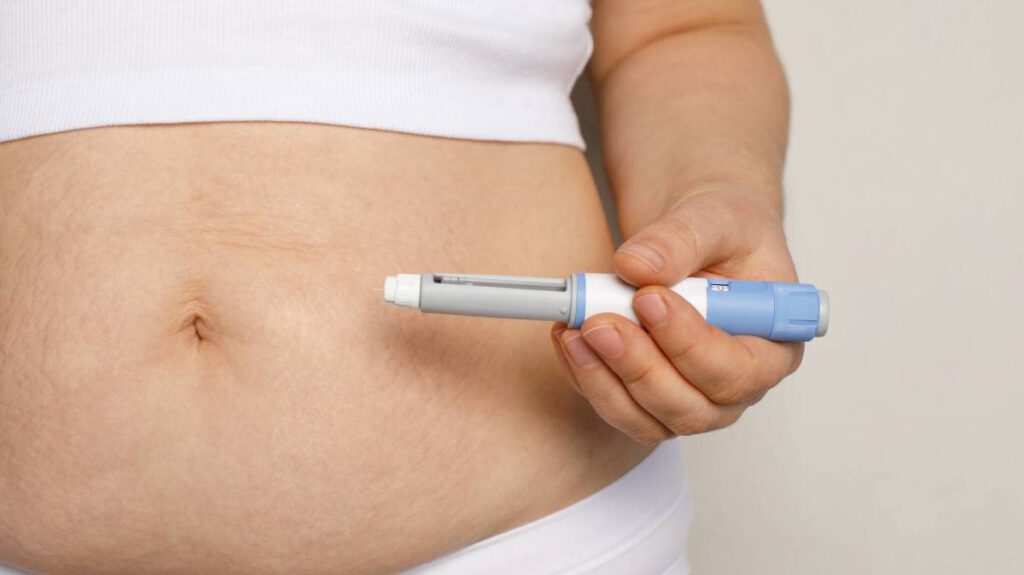Over the last couple of years, popular weight loss drugs including Ozempic, Wegovy, Mounjaro, and Zepbound have revolutionized weight loss in the U.S.
In a country where the Centers for Disease Control estimates around 40% of adults are overweight or obese, the drugs are proving to be life-changing and even lifesaving for many people.
- About 1 in 8 U.S. adults (approximately 12-13%) report having ever used a GLP-1 drug (for diabetes, weight loss, or related health conditions).
- Roughly 6% are currently using one, according to KFF.
- In 2024, U.S. spending on GLP-1 medications like Ozempic and Wegovy rose to $805.9 billion, according to the American Society of Health System Pharmacists.
- About 57% of insured people say their insurance covered part of the cost; about 24% say their plan covered the full price. Around 19% of users pay the full cost themselves out of pocket, according to KFF.
The drugs are popular, but they’re also incredibly expensive. The monthly “list price” (before insurance, rebates, coupons) for many of the newer GLP-1 medications ranges from about $900 to $1,400+ a month, according to Harvard Health.
Scammers are preying on people who want to lose weight
In a new alert, the Better Business Bureau said it has received thousands of complaints and scam reports from consumers who were tricked into paying for counterfeit or nonexistent GLP-1 products, fake telehealth consultations, or fraudulent subscription plans.
To appear credible, the schemes often use the names and images of legitimate drug manufacturers or well-known pharmacies.
“Scammers know these medications are in high demand and short supply,” the BBB wrote in an announcement. Scammers are exploiting people’s desire to lose weight quickly by setting up fake websites and social media ads that mimic real providers.
“We know people are always looking for solutions when it comes to losing weight, but we want people to be cautious while searching online,” BBB Spokesperson Melanie McGovern told TheStreet.
“Unfortunately, scammers know this and try to take advantage of people looking to improve their health. From fake ads, to phishing emails, to fake websites, BBB urges caution when shopping online for weight-loss medication,” McGovern added.
Image source: Shutterstock
How the GLP-1 scams work
The BBB says scammers often create convincing online storefronts offering discounted versions of brand-name GLP-1 drugs like Ozempic, Wegovy, or Mounjaro. Many include professional-looking packaging, fake FDA logos, or even fabricated prescription approvals to appear legitimate.
Consumers are typically asked to pay upfront — either through Zelle, Venmo, Cash App, or cryptocurrency — and are promised fast delivery without the need for a doctor’s prescription. Once the payment is made, the products never arrive, or the buyer receives counterfeit injections containing unknown substances.
Related: Ozempic creator Novo Nordisk will sell weight loss drugs for cheaper through this new partnership
Some scams use social media ads or text messages to lure people into clicking links that appear to come from real telehealth companies. In many cases, these links lead to phishing sites that steal credit card or personal information.
Other operations trick users into “subscription traps” — charging them monthly for services or medications that do not exist.
“Any site offering prescription drugs without requiring a doctor’s prescription or consultation is a major red flag,” the BBB’s McGovern warns. Consumers should also be cautious of sellers using only peer-to-peer payment methods or offering prices far below market rates.
Rising demand drives opportunity for fraud
The explosion of interest in GLP-1 medications has created fertile ground for scammers. Novo Nordisk and Eli Lilly have both reported ongoing shortages as more people seek weight-loss versions of diabetes drugs. The scarcity — combined with high retail prices — pushes some consumers to look for cheaper or faster alternatives online.
According to the BBB, reports of GLP-1-related scams have risen sharply since early 2024. Victims often discover the fraud only after charges continue to appear on their credit cards or when fake customer service numbers stop responding.
In addition to losing money, consumers risk serious health complications from counterfeit injections. The BBB notes that fake products may contain unregulated chemicals, incorrect dosages, or substances that can cause infection or poisoning.
How to protect yourself from GLP-1 scams
The BBB recommends several steps to avoid GLP-1 and weight-loss scams:
- Buy only from licensed pharmacies or legitimate telehealth providers. Check credentials through state pharmacy boards or the National Association of Boards of Pharmacy (NABP).
- Be skeptical of deep discounts or social media ads offering brand-name GLP-1 drugs without a prescription.
- Avoid peer-to-peer payment methods such as Venmo, Zelle, or Cash App for medication purchases.
- Verify website security. Look for “https” in the URL and double-check the domain name for misspellings or extra characters.
- Report suspicious activity to the BBB Scam Tracker, the Federal Trade Commission (FTC), or the Food and Drug Administration (FDA).
What GLP-1 fraud means for the weight-loss drug market
Because obesity is so prevalent in the U.S., analysts project that the global obesity drug market could exceed $100 billion by 2030, making it one of the fastest-growing categories in health care.
The rapid growth also brings risks for consumers and for the legitimate companies whose brands are being misused by scammers. Experts say drugmakers may face increased pressure to improve product authentication and to work with regulators to track counterfeit sales online.
As shortages persist and consumer demand remains high, the BBB warns the black market for fake GLP-1 products to get even bigger.
Related: Pfizer just made a quiet move that could rewrite the obesity drug race




